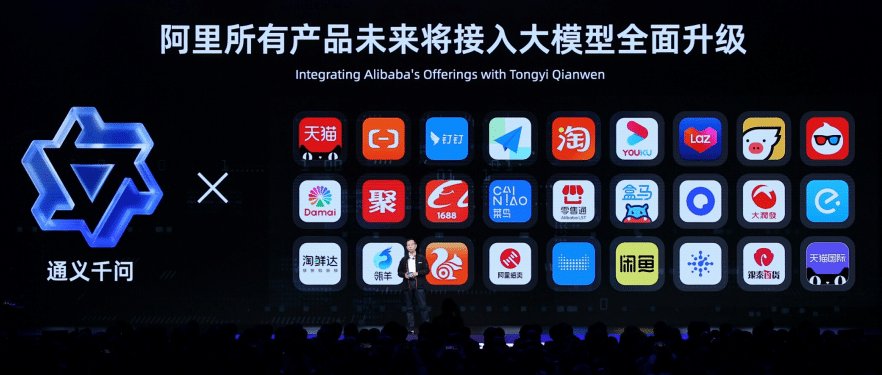
Alibaba Cloud showcased its generative AI model, ‘Tongyi Qianwen’, this week, intending to integrate it across the company’s apps. The demo arrived just as the Cyberspace Administration of China (CAC) proposed regulations for managing generative AI services.
Bloomberg reports that in a demonstration, Tongyi Qianwen drafted letters, planned trips, and advised on product purchases. The AI will initially be integrated into Alibaba’s workplace messaging app, DingTalk, and its voice assistant, Tmall Genie.

Daniel Zhang, CEO of Alibaba Group, says he believes the technology will significantly change production, work, and lifestyle.
Alibaba sees AI models as “the big picture”
Alibaba Cloud will open up Tongyi Qianwen to clients for custom large language model development. Tongyi Qianwen was developed by Alibaba’s research institute, the DAMO Academy, which focuses on advanced AI capabilities like natural language processing (NLP).
Alibaba DAMO Academy, established in 2017, concentrates on cutting-edge research in areas like machine learning, AI, NLP, and quantum computing. The academy collaborates with leading universities and research institutions worldwide, aiming to support Alibaba’s businesses and contribute to academic and scientific communities.
In a quote from Bloomberg, Zhang said, “AI models like Tongyi Qianwen are the big picture for making AI more popular in the future.”
China responds to rise of generative AI
The unveiling of Tongyi Qianwen comes as China revealed its proposed plans to regulate generative AI development.
The new draft rules from the CAC require AI-generated content to adhere to “core socialist values” and data security laws. The draft says content “should not subvert state power”, and companies must ensure the data used to train AI models will not discriminate based on ethnicity, race, or gender.
The CAC also said that AI models “should not generate false information” – something that AI models like ChatGPT are notorious for doing, albeit without knowing that they’re doing so. That suggests a lot of human intervention will be required to to vet AI-generated content in China.
In any case, China is not the only government looking to regulate generative AI. Governments worldwide are examining generative AI technology regulation, addressing ethical concerns and its impact on national security, jobs, and education. Italy recently temporarily banned ChatGPT, developed by Microsoft-backed OpenAI. Elon Musk and others have issued an open letter calling for a six-month pause in systems more powerful than OpenAI’s GPT-4.
Regs could slow down progress
On the other hand, India’s Ministry of Electronics and Information Technology has said it won’t pause AI research because it sees AI as a “kinetic enabler” of its digital economy ambitions. The Indian government also worries regulations will slow down development to the point that India falls behind the tech curve – it also argues that other regulations can deal with issues like bias, discrimination, privacy, data usage and transparency.
Analyst Charlie Chai suggested to Bloomberg that Beijing’s new rules could slow progress for orderly and socially responsible technology deployment, while creating obstacles for foreign AI service providers in China and benefiting domestic companies. Chinese tech giants have long adhered to strict internet censorship, avoiding sensitive topics.

Be the first to comment